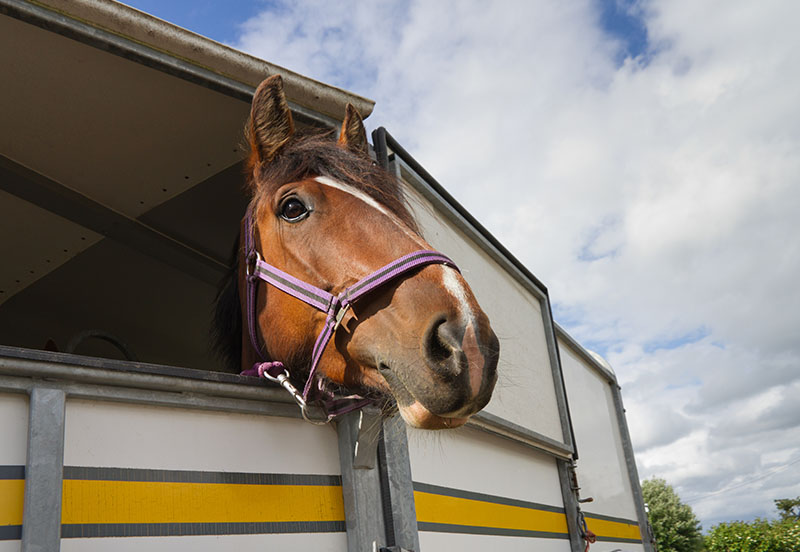
Buying a horse trailer is an investment — and going second-hand can save thousands. But the wrong buy can turn into a money pit (or worse, a safety hazard). Here’s what to check before you sign on the dotted line.
Browse horse trailers for sale on Whickr and see what’s available while you read.
Why Buy Used?
Used horse trailers often come at a fraction of the price of new — perfect for first-time buyers or those looking to upgrade on a budget. But condition matters more than age — a well-maintained 10-year-old trailer can be safer than a neglected 2-year-old.
For basics on towing and trailer types, see our horse trailer guide.
Chassis and Frame
Start underneath.
Rust: Surface rust is common, but structural corrosion (especially around welds and joins) is a big red flag. Look along seams, stress points, and load-bearing areas carefully.
Welding: Look for DIY fixes — patchy welds can hide bigger issues. Make sure any repairs look solid and uniform.
Axles: Check for corrosion, cracks, and wear on mounting points. Pay special attention to leaf springs and axle mounts, which can carry a lot of stress.
Tip: Bring a torch and get under the trailer if possible. Take a friend or a mechanic with you for a second pair of eyes.
Floor and Ramp
A rotten floor can collapse under your horse, so this is one of the most crucial checks.
Material: Check whether it’s timber, aluminium, or composite. Timber needs regular maintenance and is vulnerable to rot, while aluminium can corrode over time.
Condition: Lift mats if safe to do so; inspect for rot, warping, or soft spots. Use a screwdriver to test any questionable spots.
Ramp hinges: Should be secure and free-moving. Avoid trailers with DIY hinge fixes or obvious repairs. Check the ramp’s angle and weight — a heavy or too-steep ramp can cause loading issues.
Brakes and Electrics
A trailer that doesn’t stop properly is a serious hazard.
Brakes: Test handbrake function. Look for corrosion on cables and linkages. For legal requirements, visit GOV.UK: Trailer Safety.
Lights: Check all bulbs, reflectors, and wiring. Inspect for exposed or frayed wires, which could cause shorts.
Breakaway cable: Should be intact and securely attached. Ensure it’s not tangled or kinked.
Ask the seller about recent servicing. A well-kept trailer should have a maintenance record showing brake and bearing checks.
Tyres and Wheels
Check:
Tread depth: UK law requires at least 1.6mm. If it’s close to the limit, budget for new tyres.
Sidewalls: Look for cracks or bulges — age matters, even if the tread looks good. UV damage can weaken the sidewalls, too.
Spare wheel: Should be present and roadworthy. For tips on trailer tyre safety, see TyreSafe.
If you’re planning long journeys, consider fitting a tyre pressure monitoring system to catch slow leaks before they become a problem.
Doors and Hinges
Doors, ramps, and partitions should open and close smoothly. Watch for:
Rusty hinges or missing bolts that could make doors stick or fail.
Loose latches that might pop open in transit — a major safety risk.
Partitions that swing freely and lock securely. Loose or rattly partitions can spook a horse and make travel unsafe.
Paperwork and Legal Checks
If buying from a dealer, ask for:
Proof of ownership
Service history (if available)
Original user manuals
If buying privately, get:
A written receipt showing the seller’s name and address
Confirmation the trailer is free from finance (you can use an HPI check for added security)
Any receipts or records of maintenance
Check that the trailer’s VIN matches the paperwork. If in doubt, walk away.
Final Thoughts
Buying a used horse trailer is a smart way to get on the road affordably — but only if it’s safe and well-maintained. A cheap trailer that needs major repairs or has hidden damage can end up costing more than a new one.
Take your time, ask the right questions, and don’t be afraid to bring a knowledgeable friend or professional with you for a second opinion.
Browse horse trailers for sale and find your perfect trailer today.
FAQs
Q1: How can I check the age of a horse trailer?
Look for the manufacturer’s plate or ask the seller for paperwork. Some trailers have the year stamped on the chassis or VIN.
Q2: Is it legal to tow a trailer with rust?
Surface rust may be acceptable, but any corrosion that weakens the structure is a safety hazard and could fail an MOT.
Q3: What’s the best floor material for a trailer?
Aluminium is durable, but timber can be fine if maintained. Both need regular checks for rot or corrosion.
Q4: How often should a trailer be serviced?
Ideally, annually or every 3,000 miles, whichever comes first. Regular servicing catches wear and tear before it becomes a safety issue.
Q5: Can I use a trailer without brakes?
No — all horse trailers must have working brakes for safe and legal towing.
Q6: Can I buy a horse trailer on finance?
Yes — many dealers offer finance packages, but check interest rates and any extra fees. Make sure you can afford the repayments comfortably.
Q7: What are the biggest red flags when buying used?
Rust, floor damage, dodgy repairs, incomplete paperwork, and sellers who won’t let you inspect properly — all these are warning signs to walk away.


